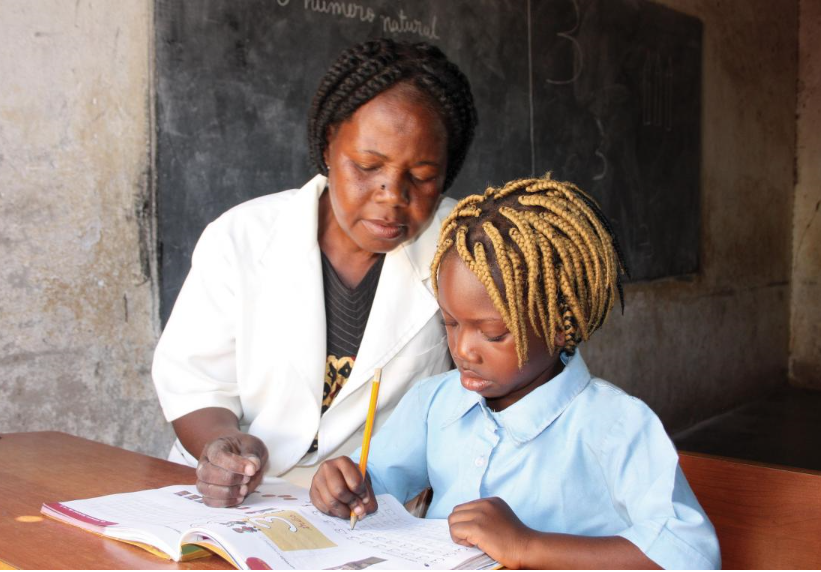Mozambique has shown its commitment to education. It has abolished school fees, provided direct support to schools and free textbooks at the primary level, as well as made investments in classroom construction. The education sector receives the highest share of the state budget, over 15 per cent. As a result, there has been a significant rise in primary school enrolment over the past decade. Yet quality and improvement in learning has lagged behind. Also, enrolment stagnates in upper primary and secondary despite increased provision. About 1.2 million children are out of school, more girls than boys, particularly in the secondary age group. The 2013 national learning assessment found that only 6.3 per cent of Grade 3 students had basic reading competencies. A 2014 World Bank survey showed that only 1 per cent of primary school teachers have the minimum expected knowledge, and only one in four teachers achieves two-digit subtraction. Absenteeism among teachers is high at 45 per cent, and directors at 44 per cent. About half of enrolled students are absent on any given day.
Another huge challenge is the lack of an early childhood learning serviceThe service is currently only available to an estimated 5 per cent of children between 3 and 5 years, with most services still located in urban areas.

